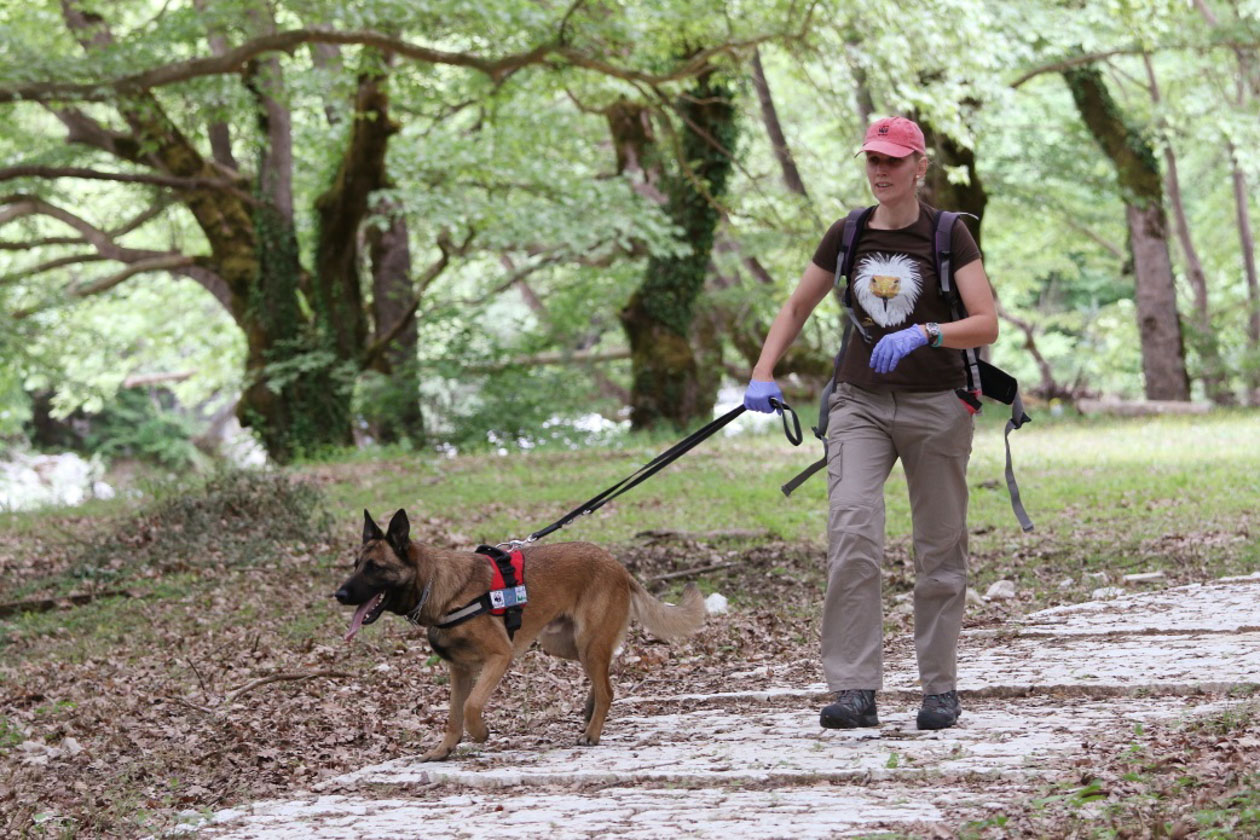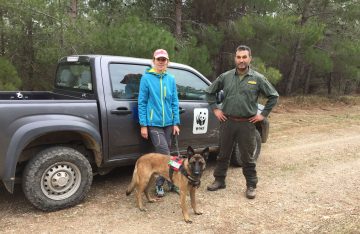With the first anti-poison dog units patrolling the Rhodope Mountains rewilding area from 2016, their counterparts on the Greek side of the border are also carrying out equally valuable work.

In 2016 the first anti-poison dog unit – comprising a highly trained dog and handler – began patrolling the Rhodope Mountains rewilding area in Bulgaria. As part of the ongoing, EU-funded LIFE Vultures project, which aims to boost populations of black and griffon vultures in Bulgaria and Greece, the main aim of the unit is to help establish poison-free areas by controlling and removing poisoned baits before they can negatively impact local wildlife.
Despite being illegal, such baits and carcasses are frequently put out by local people with the aim of killing foxes, jackals, wolves and other animals that are seen as a threat to livestock. This can have a disastrous effect on vultures, which forage widely for such carrion.
Across the Bulgarian border, in the Greek section of the Rhodope Mountains, two other anti-poison dog units have also been playing a critical role in vulture conservation. Since 2014, patrols organised by WWF Greece and the Hellenic Ornithological Society have been working hard to protect local populations of vultures, with a main focus on the last Egyptian vultures remaining in Greece.

The skill, professionalism and dedication of one of the Greek units – made up of Ela (the handler) and Kiko (mix of German and Belgian shepherd dog) – was aptly demonstrated in November. Following a call from a hunter, whose dog had died in a forest close to the village of Mesimvria, the pair were rapidly on the scene.
Kiko soon discovered a goat carcass which appeared to have been laced with a green-coloured pesticide. A public vet was called to take samples for analysis, while the carcass – which posed a significant threat to both domestic animals and wildlife – was quickly removed and disposed of. Thanks to the timely intervention of the team, thankfully no vultures had been affected.
Unfortunately, the outcome of poison-related incidents isn’t always so benign, with the need for anti-poison dog units in both Greece and Bulgaria made evident by a number of other highly regrettable incidents. Last year saw several instances of poisoning in the Bulgarian Rhodopes, with the local unit heavily involved in detection. In early December this year, in another suspected case of poisoning, two dead black vultures were discovered by the WWF Greece anti-poison team.
The Mesimvria incident shows the importance of involving local communities and hunting associations in efforts to combat poisoning. The quick reaction of the Alexandroupolis Hunting Club, which first contacted the anti-poison unit, was instrumental in the early detection and disposal of the carcass.

To strengthen people’s awareness of the negative impact of poisoning, the Greek anti-poison units are now working to develop a network of local residents, public authorities and professionals (such as livestock breeders and hunters) who can work together to combat this hugely destructive practice.
Focusing on the Rhodope Mountains rewilding area in Bulgaria, as well as a section of the Rhodope Mountains in northern Greece, the aim of the LIFE Vultures project is to support the recovery and further expansion of the black and griffon vulture populations in this part of the Balkans, mainly by improving natural prey availability, and by reducing mortality through factors such as poisoning, poaching and collisions with power lines.
Home to three different breeding species, the Rhodope Mountains of Bulgaria and Greece are a critical area for the recovery of European vultures. The Rhodope Mountains rewilding area is the only breeding site of Bulgaria’s indigenous griffon vulture population, while the area is also home to the largest population of the globally threatened Egyptian vulture on the Balkan peninsula.
